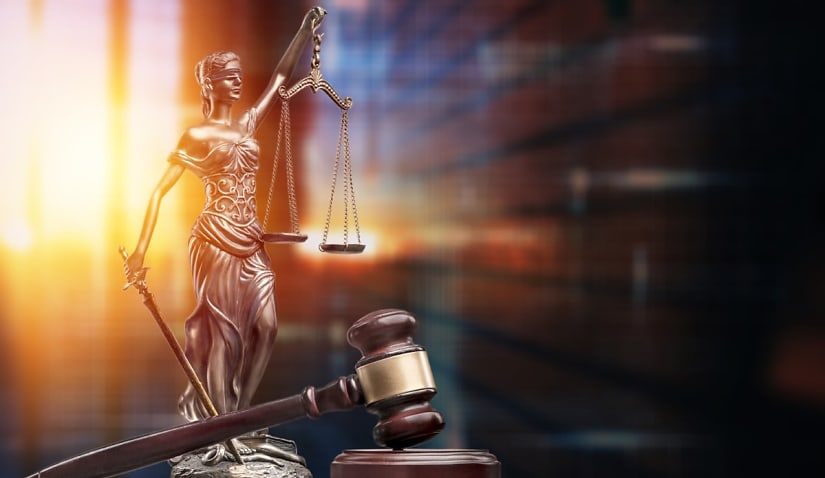The proceedings being brought by former political staffer Bruce Lehrmann against Network Ten and Lisa Wilkinson “could well be seen by the public, and reported by the media, in a similar way” to a criminal trial, litigators tell Lawyers Weekly.

Earlier this year, Bruce Lehrmann filed defamation proceedings against Network Ten and high-profile journalist Lisa Wilkinson over an interview aired on The Project in February 2021, during which fellow former political staffer, Brittany Higgins, alleged that she had been raped in the office of then-defence minister Linda Reynolds at Parliament House.
Mr Lehrmann has, repeatedly and strenuously, maintained his innocence and pleaded “not guilty” in the criminal trial in the ACT Supreme Court, which was ultimately abandoned because of juror misconduct. No findings have been made against him.
In her filed defence, Ms Wilkinson argues that the limitation period bars the causes of action being brought, but if required, she seeks to rely on the defences of justification and qualified privilege, submitting that the imputations complained of are “substantially true”.
Mr Lehrmann is being represented by Mark O’Brien Legal, and the respondents are being represented by Gillis Delaney Lawyers and Thomson Geer.
Mr Lehrmann has also filed proceedings against News Life Media and journalist Samantha Maiden. As of the time of writing this story, those defendants have not yet filed defences with the court.
In February, the terms of reference for an inquiry into the conduct of criminal justice agencies involved in the trial R v Lehrmann were released, with a former solicitor-general of Queensland being appointed to head up the inquiry.
At the time of the decision by the ACT DPP to drop the charge against Mr Lehrmann, Lawyers Weekly spoke with practitioners about what the decision not to proceed says about the criminal justice system, with one saying there may “forever be a cloud hanging over the proceedings”.
In conversation with Lawyers Weekly, Executive Law Group managing partner Jahan Kalantar reflected that the complexity of the legal system, and the fact that it is inextricably linked with human stories and struggles, means that there will be “situations which emerge which we cannot imagine, foreshadow or foresee”.
The current defamation case brought by Mr Lehrmann and the inquiry being held into the conduct of the criminal trial are examples of this, he said.
“Defamation proceedings are not criminal proceedings, and yet the defence of truth that is being asserted means that they are trying to establish the version of the complainant.”
“From that perspective, and to the outside world, who understandably are unaware of the complex safeguards that exist in the criminal jurisdiction for the protection of the integrity of the process, it would appear to be similar to relitigating the issues before the criminal court,” he mused.
This is “obviously problematic”, Mr Kalantar submitted.
Hall & Wilcox special counsel Hamish McNair explained that the aborted criminal trial and the subsequent defamation proceedings brought are “very different in a legal sense, but could well be seen by the public, and reported by the media, in a similar way”.
“The defence of truth is legally the simplest, but factually the most fraught, of the potentially available defences to defamation claims,” he posited.
“By raising the defence of truth to the claim brought against her (and others) by Mr Lehrmann, Lisa Wilkinson is able to pick up where the criminal prosecution left off with the benefit of a comparatively lower burden of proof.”
At the time of speaking with Lawyers Weekly, Mr McNair said it was unclear what evidence Ms Wilkinson would seek to rely on in support of her defence, including whether the alleged victim will be called to give evidence.
“Contrary to the position in the criminal trial, it will not be necessary that she does so,” he said.
Subsequent to that conversation, Ms Higgins noted on Twitter that she was willing to give evidence in such proceedings — reaffirming a position she took on the social media platform back in December.
“The prospect and consequences of a truth defence should be a key consideration for all defamation plaintiffs; however, this is heightened where the alleged defamatory meanings concern criminal guilt,” Mr McNair stressed.
“Mr Lehrmann has made the informed decision to sue in the face of these obvious risks, although he may feel that he has nothing left to lose.”
Bartier Perry partner Adam Cutri — who last week appeared on The Lawyers Weekly Show to discuss, among other things, how the stakes are getting higher in defamation proceedings — said that defendants will “usually go to great lengths” to prove the truth or contextual truth of the imputations.
“We often see such defences turn into de facto criminal proceedings,” he detailed.
“This could have unintended consequences, resulting in criminal charges being laid against defamation claimants if the imputations are proven to be true to the civil standard.”
“Other issues of self-incrimination also arise if the defendant calls the plaintiff as a witness about imputations involving criminal allegations. Similarly, alleged victims (even if not parties to defamation proceedings) may be subjected to unpleasant cross-examination which raises ethical concerns about their wellbeing,” Mr Cutri listed.
“In highly publicised matters such as this, commentary about the plaintiff will almost always be open slather, so criminal trials by media will also often follow.”
Ultimately, Mr Kalantar said, “given the way defamation proceedings are heard, the defence of truth is available, and they are entitled to press it”.
“As situations like this become more common, it will be interesting to see what strategy the court will adopt to overcome this incredibly complex interplay,” he noted.

Jerome Doraisamy is the managing editor of professional services (including Lawyers Weekly, HR Leader, Accountants Daily, and Accounting Times). He is also the author of The Wellness Doctrines book series, an admitted solicitor in New South Wales, and a board director of the Minds Count Foundation.
You can email Jerome at: